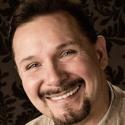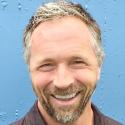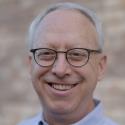2021 Apologetics (Advanced) Network
- Image

What did the Apostle Paul do when Pre-Christian Europe was pagan, relativistic, and pluralistic? He did apologetics among his contemporaries. Paul went to the Jews arguing from the Old Testament Scriptures that Jesus was the Christ. Paul also went to pagan Greeks and used their literature and cultural artifacts to argue that the "unknown God" has been revealed and proclaimed in Jesus.
21st century Europe is in a state very similar to Paul's time. Just as Paul confronted the marketplace of ideas in his generation, Europe today needs gifted apologists who can demonstrate that Christianity is true and relevant. Therefore, the vision of the European Apologetics Network is to train a new generation of apologists who can stand in today's marketplace of ideas in the way that Paul did in his generation. Our desire is to develop apologists who will testify to the truth of the Gospel with wisdom, versatility, and courage in their efforts to persuade their contemporaries.
Applicants should be those with evangelistic or apologetic gifts who have previously attended the European Leadership Forum Apologetics Network: Foundational Track and the European Evangelism Network. The purpose of the Network is to train, mentor, equip, and resource those evangelists and apologists who are seeking to communicate the Gospel in their local communities. Prior preparation will be set for all applicants.
Applicants should be those with evangelistic or apologetic gifts who have first attended the European Apologetics Network: Foundational Track and the European Evangelism Network. The purpose of the Network is to train, mentor, equip, and resource those evangelists and apologists who are seeking to communicate the Gospel in their local communities.
Network Leadership
Network Speakers
Andy Bannister is a highly in-demand speaker, writer, and broadcaster. Based in the UK, he's the director of the Solas, an evangelism and training ministry. Andy is the author of several books including "The Atheist Who Didn’t Exist (or: The Dreadful Consequences of Bad Arguments)… Read more
William Edgar is currently Professor of Apologetics at Westminster Theological Seminary in Philadelphia, USA. He was previously Professor of Apologetics at the Reformed Seminary in Aix-en-Provence. Before that he taught high school in Greenwich, CT, USA. He holds the Bachelor of Arts with Honors… Read more
Andrew Fellows was appointed pastor of a church in Bradford, West Yorkshire in 1988 where he served for seven years. In 1995 his family moved to the English branch of L’Abri Fellowship, where they lived and worked for 21 years. From 2011 to 2016 Andrew was the chairman of L’Abri International.… Read more
Douglas Groothuis, Ph.D., is Professor of Philosophy at Denver Seminary, where he has served since 1993. He is the author or co-author of fourteen books, including Christian Apologetics and Walking through Twilight: A Wife's Illness--A Philosopher's Lament. He has published 29 peer-… Read more
Stefan Gustavsson is a member of the European Leadership Forum Steering Committee. He is the director for Apologia – Centre for Christian Apologetics and makes his home in Stockholm. He was the founding general secretary for 16 years of the Swedish Evangelical Alliance. Stefan travels widely… Read more
Kristi Mair teaches philosophy, ethics, and apologetics at Oak Hill College in London, UK, where she also provides pastoral support for F students. She holds a degree in philosophy and theology, as well as an MA in philosophy of religion and ethics. She is currently working on her PhD in the… Read more
Jeff Myers is president of Summit Ministries. As an educator and entrepreneur, Dr. Myers has become one of America’s most respected authorities on youth leadership development. Focus on the Family founder James Dobson referred to him as “a very gifted and inspirational leader.” Evangelist Josh… Read more
Randy Newman is the Senior Fellow for Apologetics and Evangelism at The C. S. Lewis Institute in the Washington, DC area. He has taught at several evangelical seminaries and is currently an adjunct faculty at Reformed Theological Seminary and Patrick Henry College. After serving for over 30… Read more
Network Programme
Sunday, 16 May
Suffering is a fact of human existence, facing every generation, including us. In the Bible, a whole book – Job – deals with this dilemma: God is the good creator, and yet we as his creatures are stuck in horrible situations – in his world! What can we learn from the book of Job about God, humans, and suffering?
In a time of post-truth, virtue-signaling and relativism, do people even care about truth? When it comes to engaging with our cultural moment, how can we persuasively communicate the truth of Jesus Christ? In this session, we will explore a few philosophical underpinnings before we consider how we can share Jesus in a non-truth culture, where slogans like ‘stay in your own lane’, and ‘you do you’ dominate discussions. How can we engage, expose, enter, and evangelize in seemingly disinterested and apathetic societies? We will also spend time considering how we can share the liberating, life-giving joy of Christ when suspicion, power-plays, and corruption occupy the public imagination.
Monday, 17 May
A key element of a credible apologetic is an appreciation of our cultural context. To discover this involves looking backwards at the big ideas that have shaped the West. This talk explores the three main chapters of our intellectual history and how each is displayed today. We will also investigate what a Biblical critique entails.
The gospel never changes but our audiences do—in seemingly limitless ways. How to proclaim good news, so people actually hear it, has always been a challenge for God’s people. For starters, evangelism needs to be more dialogical and conversational and less confrontational and presentational. This seminar flows out of decades of evangelistic ministry and extensive research about how people are actually coming to faith today.
Tuesday, 18 May
Up to 70% of young adults raised in church drift away from their faith after graduation. What can we learn from the 30% who stay? Dr. Myers shares three observations to show how churches—and families—can create an atmosphere in which the faith of Millennials can remain vibrant and strong.
Some claim that since so many do not believe in God, He must not be there, since if He was there, He would make himself more obvious. An all-good and all-powerful being would not leave us in the dark. This session will argue that He has not done so, but that we need to approach God in the right way to come to know Him. Blaise Pascal will be the central inspiration in this.
Wednesday, 19 May
This session will be an interview of William Edgar, professor of apologetics at Westminster Theological Seminary in Philadelphia, PA. It will discuss his experience of L’Abri Fellowship, the influence of Cornelius Van Til, and Dr. Edgar’s work in applying apologetics to the areas of art, music, ethics, and theodicy. Interview conducted by Stefan Gustavsson.
What do we do when we encounter a question or challenge about our faith we haven’t heard before? Do we need to master every apologetic topic before we can feel ready to stand up and share the gospel at work or university? This session will share a simple five-step framework that, with practice, you can apply to any tough question that comes up during evangelism. It will take two or three common questions and work through them to show how it works in practice.









